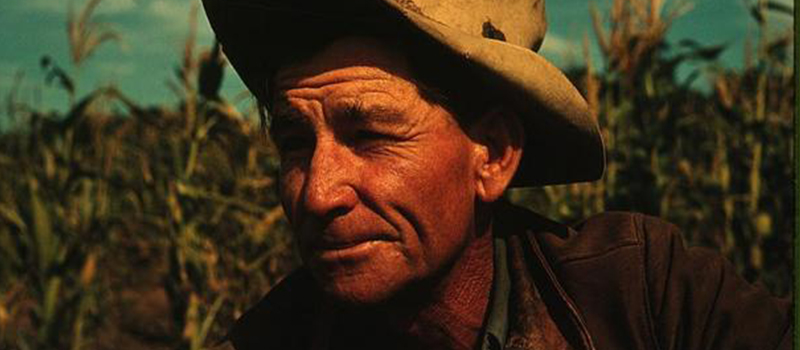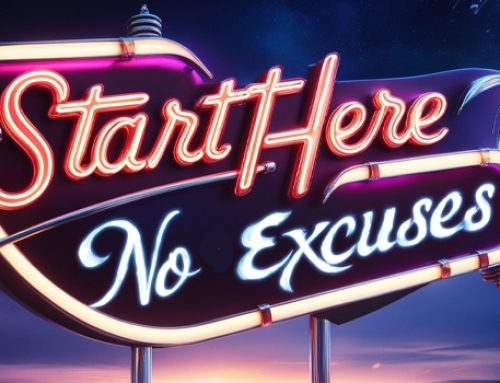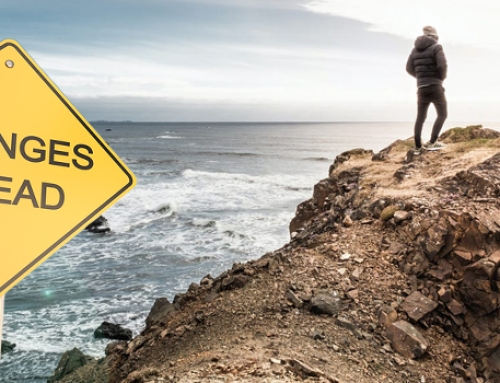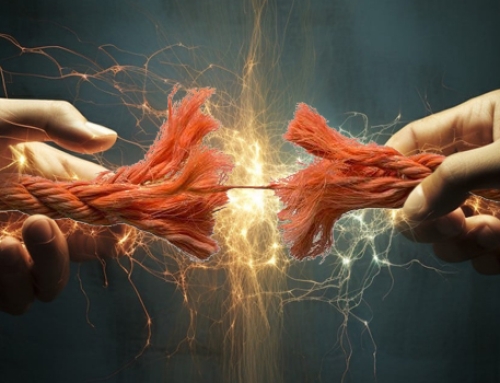The 6th Installment in the Series: How to be Resilient
COPING
Today our society is awash with so many ridiculous regulations, coddling rules, and legislating societal mores that seem to be the norm these days. It seems like those attempts to bolster the life experience across the board are actually weakening the self foundational pillars of confidence, liberty, and independence. It’s a wonder that those of us over 30 survived our childhoods. And it will be an absolute miracle that many of those under the age of 30 will be able to survive aptly in their later lives.
I know that is a pretty bold statement, and there are certainly exceptions to that generalization, however, the greater whole who this statement applies is being played out in all facets of our society as we speak.
Historically Speaking
For the first 160+ years of this country, there was no guarantee of tomorrow. Meaning that there wasn’t anything you could turn to (besides family and your church) to help you when misfortune came your way. Whether it was imposed on you by someone or something else, or you brought it on yourself, that chance of a downturn was a part of life.
Parents of the time, taught that reality to their kids, in fact, many times that reality stared those kids right in the face. Life was hard, and all that you could do was to minimize the effects that it had on your life. You had to be ready when that bad luck hit, have things in place that could help you through it (both physically and mentally), and that you could take steps for that not to happen a second time.
Coping skills were instilled in you from the beginning of life. Hardships, natural disasters, deaths… you name it life was not in any way candy-coated. Even the task of living daily, eating, and maintaining your home, and looking out for family was rough and took a concerted effort along with a lot of time out of your day.
Back in the 70s was the turning point and it was two-fold. On one side the tasks needed to be performed to live became easier to do, (with the machinery and household appliances doing its lion’s share) and life became more about the finer things of life. Combine that with the failing Social Security system and Great Society Welfare state and despite what calamity to befall you, you had a backup to fall on from the government. Lessening the importance of the family and their church affiliations in the process.
On the other side, with kids, there started to become more of an awareness of the dangers facing them. Labor laws had done their jobs and eradicated child labor a few decades before. No, this was about those deviants who wished to do harm to kids. Whatever their devious designs may have been, you started hearing more and more about that in the news, in the neighborhoods, and at the dinner table. Stranger Danger started to become a driving force in child-rearing.
Couple that with the likes of Dr. Spock and all those “thinking-heads” writing books on how to raise children, and that what had worked to raise a good upstanding and good-natured human being in the past was no longer relevant. The “wussification” of growing up had begun.
Made Weak
Whichever the reason it began to be more prevalent, helicopter parenting or as some like to view it as sincere concern and additional protections for kids, there started to become a constriction of what was being allowed for kids to do.
Those days of non-parental oversight, playing war with makeshift guns or BB rifles, riding your bike anywhere you could; using knives and axes to make forts and fashion tools, and having the freedom to make choices (good or bad) WITHOUT a parent looking over a shoulder have for the most part disappeared.
Yeah, there were a lot of accidents that happened, however, there is something to being able to learn a lesson right when there could be no one else to blame but yourself. And there wasn’t anything more thrilling when you got it right!
Unfounded fear was used, instead of unbridled courage as the underlying current of child-rearing.
Parents can’t let them go out and be independent, or they’re charged with neglect, and the children are taken away as a result. “Free-range parenting” is all but illegal and childhood is a completely different experience these days.
The results are that there won’t be as many bucking the trends anymore, or as many individual thinkers as having been in the past because this generation has been frightened into submission and apathy through a deliberately orchestrated culture of fear that has been instilled by the “experts”. No one will have faced an adventure, had truly taken on the unknown, and perhaps looked at their own mortality in the eye… the highs and lows of life have been smoothed out that which had built character, taught lessons, and gave you a chance for YOUR STORY.
Kids have been brainwashed – yes, brainwashed – into believing many things that are just not so. That the machinations of Nature cannot be influenced by mankind enough for us to destroy it wholesale. That independence of thought and action is not better than conforming to what’s deemed Politically Correct. That the mere thought of self-defense with a gun means you’re a psychotic killer waiting for a place to rampage.
They are terrified to do anything if they aren’t wrapped up with security blankets, helmets, knee pads, wrist guards, and other protective gear. That their fragile minds need to have assigned trigger warnings and safe spaces provided for them and put into place.
They haven’t had to ask themselves the hard questions. A vast majority haven’t looked introspectively into what they believe, and who they truly are. They have never had to deal with true hardship, either physically or mentally. Sure, they have had difficult situations arise, but they have always had a fallback that they could rely on, someone to handle it for them, a place they could escape to. They never were allowed to develop a sense of self-confidence in their truest state.
Our children have been enveloped in this softly padded culture of fear, and it’s creating a society of people who are fearful, out of shape, overly cautious, and painfully politically correct. They are incredibly incompetent when they go out on their own because they’ve never actually done anything on their own.
Raised Strong
Let’s look at the example of times past. I give my upbringing as an example. Growing up, my parents were there for me, if I asked them to be. They were there at the dinner table and could be counted on in a dire situation to, at least, be at my side as I went through the pain and consequences of what I did. They, however, were not there to lessen the blow of what came my way. Instead of talking with a principal of my school when I was getting bullied, my dad taught me how to throw a punch, and how to defend myself. He also taught me, with this newly-found skill that there could be consequences in using it. That is why I tried to use it for good and to bust bullies of other kids.
They weren’t there to look over my shoulder for every decision I made, but if my decision was wrong and affected others, they were there to make sure I remembered that lesson. Then, they didn’t hold it over my head after I had paid the price. They weren’t there to shelter me from the world, rather, when the world reared its ugly head they were there to help me make sense of it and to cope with it. Allowing me to build my story and my independence foundations.
I didn’t have a special language or teaching style given to me because of my age or sensibilities. I was told straight out how the world was. again without it being sugar-coated. I watched the space shuttle blow up in class. I saw what it meant to be free to choose. They smiled at me when I did good, but they didn’t make a big deal about it, because that WAS WHAT WAS EXPECTED OF ME. I didn’t get trophies just for showing up or merely participating – I got them for winning. And when I lost, I got a “better luck next time” and don’t be a sore loser. I was forced – yes, forced – to do actual work, and no one called protective services. And I gained something from all of this:
My full independence.
The knowledge and hands-on know-how that whatever came my way I could handle, work through, or power over. How many of our kids have that confidence today?
What Can We All Do About It?
I know it is very hard not to want to shelter our kids from the ugly this world sends our way. Often the sentiment of building a wall around them is said when parents talk about what is in the world today. But to do so would be robbing the kids of the very thing they need to build their own stories… and their own confidence.
This weakening has been done on purpose by those who have wanted to have a subservient society that can be manipulated and driven like sheep. Those in education and the experts in child-rearing in the last 35 years have done us all a great disservice. But as we recognize it now, it is still time, even if your kids are in their 20’s to reverse the tide.
- Find Examples – Those that haven’t had a lot of practice with the best coping mechanisms and have avoided the hard times since their upbringing will need to find examples, good examples from real people. Avoid anything fictional… there is something that the brain keeps in disbelief of if it is fiction. Stay with the biographies and autobiographies.
One example could be from Viktor Frankel. If that name doesn’t ring a bell, he was a psychologist that came upon a universal truth at the most dire of times and horrific circumstances. See, Viktor was a Jew. And that alone doesn’t seem like anything too special, but it wasn’t a good thing to be living in Germany’s warpath back when the Nazis were rounding them up and putting those Jews in death camps.
In this time of terror, where others were actively seeking your demise by working you to sheer exhaustion, giving you little food, if not it being rancid; allowing little solace in your living conditions. In this time of rampant diseases taking people on your right and left. Of horrific punishments for doing nothing but being a Jew… he saw how once someone lost hope, whatever the object hope was set upon, it was only a matter of time before they were taken away to the furnaces.
One day back in 1944, as he was being punished, he thought of his plight. The Nazis had taken EVERYTHING from him, his earthly possessions, all his freedoms, even his hair. He realized that at that point the only real thing that he was still in possession of was his mind and consequently his will, and his outlook on living… even in these squalid conditions. That was the one thing that they could never take from him, only if he would let them.
It was through this realization, of keeping hope, of looking beyond the present into the future, and seeing what good there could be. And if there was not any, then to make it up so there would be something to look forward to. It kept his heart and mind resolute that he could survive and outlive those very bad situations he found himself in.
Search out those inspiring stories, tell them to your kids both young and old and perhaps, mix in some of your own so they too can see it is possible to come through hard times in life.
- Visualizations – One of the things that Viktor chose to do is imagine himself in different places, under better conditions, and with the people he wanted to be with. We too can utilize this skill, once we become familiar with those methods that had been used by others. Whatever their situation was, how they chose to think, to say, and to act in times of trials and tribulations.
Practice your reactions and actions in your mind with the perceived or realized hardship. How you can choose to solve, or overcome, or even minimize the impacts of the news, the attitudes, and the acts being perpetrated.
Allow yourself to feel the feelings, emotions, and mental state of the trial you are facing before you start your visualizations. Allow yourself to feel it all, and then imagine yourself doing what those examples you have become acquainted with did. How they faced and handled a similar event. Think it all through to your desired end result. And if you have learned anything from me, it is that Practice Makes Permanent. Do this over and over again. It is a matter of “muscle” memory, and your brain is no different in this matter.
When you hope for the best and anticipate for the worst, you won’t ever be totally caught off-guard and be able to face whatever comes your way.
- Actualizations – Some of the coping mechanisms that we spoke of briefly above can also assist you in those trying times. Here are a few more to consider:
- Distancing – utilizing the abstract thought processes of the brain to put distance between you (your mental and emotional state) and the hardship that is currently occurring. You take a look at the trial from a 3rd person point of view in an almost analytical mode. This allows you to clearly see the “whole picture” and allows you to pick your action to take instead of just reacting to what is happening.
- Perspective Choice – This is the method of determining beforehand, as anything and everything happens to you and around you that you will maintain a certain perspective. For example, the lesson to be learned in it all or looking for the bright side of the situation or keeping fully in mind what and who you have determined yourself to be, barring any circumstance you find yourself in.
- Actual Practice – This is using knowledge of the unknown. Fear and unmeasured reactions happen when it is new to you (whatever the downturn or mishap may be). But if you are aware or have been through similar happenings before you can use that knowledge and navigate through it accordingly. Nothing can substitute for actual knowledge, whether it be others’ examples or your own.
How Can We Teach It?
Now, I’m not advocating that we send 3-year-olds out to the wilderness with knives to fend for themselves for a few days! Nor am I moving for a return of child labor (although some hard work in certain times of their early life is a very good thing) to give a series of hard knocks to those growing up.
Also, you do have to take into consideration the age of the child and their capacity for the hardship or trial. If it is appropriate for you as the parent or the guiding sage of sorts, you can determine what and sometimes when something occurs.
Have the foresight, that when such a bad time happens in their lives, that you don’t shortcircuit the lesson that can be learned. Don’t get in the middle of it, be there as support, but let them exercise that mental muscle, gain their confidence and build their own story. You don’t have to manufacture these instances, they readily come along as a part of everyday life. Be smart in using them as a building tool, instead of another time you got in the way and you show them that they are incapable of handling it themselves.
Rather, nurture the pull for independence that they exert. Boot them outside. Get your kids away from their TVs, laptops, and video games. Get sweaty and dirty. Do things that make the wind blow through your hair. Go off in search of the best climbing tree you can find. Shoot guns. Learn to use a bow and arrow. Play outside all day long and catch fireflies after dark. Do things that the coddled world considers too dangerous
and watch your children blossom.
In all, teach your kids what freedom feels like.
FOOTNOTES
*As a reminder, here is our Self Reliance List 1) Competence 2) Confidence 3) Connection 4) Character 5) Contribution 6) Coping 7) Control 8) Core Values






